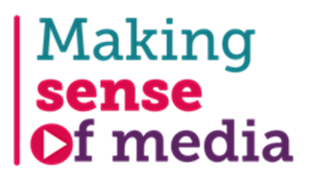Ofcom’s Making Sense of Media (MSOM) June roadshow saw four events take place over four consecutive days in Belfast, Cardiff, Manchester and Edinburgh.
The MSOM programme of work aims to help improve the online skills, knowledge and understanding of UK adults and children.
The roadshow comes after the publication in December 2021 of MSOM’s Approach to Online Media Literacy, detailing priorities across five pillars of work (engage, initiate, establish, evaluate, and research).
It also follows the appointment in January of Bimpe Archer as Ofcom’s Northern Ireland Media Literacy lead and Karen Baxter as Ofcom’s Northern Ireland board member in March.
The event’s focus was on showcasing the media literacy work Ofcom is doing and expanding its stakeholder network across the Nations.
Belfast was the best attended stop on the roadshow, illustrating the breadth and depth of media literacy work taking place across Northern Ireland.
Attendees heard about the work being done from the Belfast office by Alana Finn, one of Ofcom’s Media Literacy policy leads, on the Establish pillar of the programme – looking at what works well and what does not, in order to identify good media literacy design principles and inform our thinking about our future online safety duties.
Her work has focussed on understanding how users engage with the steps that can be taken to improve online media literacy, exploring how service design affects user literacy and the effectiveness of specific types of intervention. It is building an evidence base of what effective service design and delivery might look like.
Speaking at the event were child safety expert Jim Gamble of INEQE, Dr Orna Young of FactCheckNIand Caoimhe Donnelly of content distribution and communications platform Legitimate.
During the panel discussion, Q&A and break out discussions afterwards a number of themes emerged. This included the need to aid parents to empower their children to develop skills to stay safe online and the importance of “meeting people where they are at” as non-digital natives increasingly feel out of touch with the fast pace of technological change.
There were also warnings that the cost of living crisis will exacerbate existing digital exclusion problems in Northern Ireland at a time when being unable to get online effectively bars people from participating fully in civic society – including access to key services.
